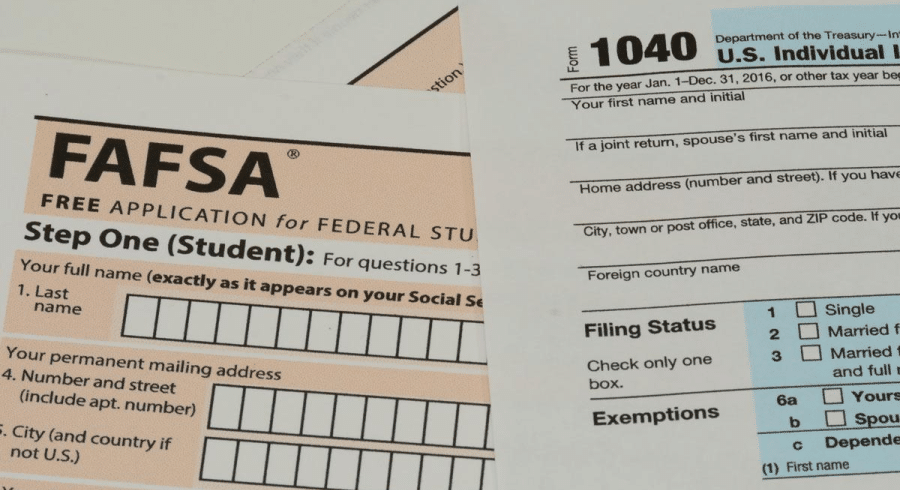Apple Company Employee Benefits: Financial Planning for Employees and Executives
Do you work for Apple? Get the resources you need and expert insights from financial professionals who specialize in helping Apple employees make the most of their compensation package and benefits.
Whether you’re a new Apple employee or you’ve moved up the ranks into a management or executive leadership role over a multi-year career, it’s important to make smart money moves with your income and employee benefits. For example:
✅ Do you know the right moves to make to get the greatest value from the Apple benefits available to you?
✅ If you’re thinking about leaving Apple for another job or planning to retire from the company in a few years, are you taking the right steps today to ensure you will receive all of the compensation and benefits that you’ve earned?
Get the Most Value from Your Apple Company Employee Benefits
Throughout the year, Apple provides its employees and executives with updates about their benefits ranging from health insurance and health savings plans to retirement plans like a 401(k), deferred compensation plans, and stock options. While the company offers many useful resources and access to knowledgeable staff who can assist with questions, you’ll also find financial professionals not affiliated with Apple who specialize in helping Apple employees make the most of their income and benefits.
Whether you work at Apple Park in Cupertino, California, another office or retail location around the country, or remotely from home, you may have questions about your compensation package and benefits better suited for a financial professional who can offer unbiased advice and guidance.
For example, sensitive topics like discussing the steps you should take before quitting your job at Apple to work elsewhere, protecting yourself in advance of a corporate layoff, or deciding when you should plan to retire are all conversations that may be more comfortable with a trusted financial advisor.
💡 In the Q&A below, you’ll gain insights from financial advisors who work with Apple employees to help them make smart decisions to get the most value from their compensation and benefits, reduce their money stress, and prepare for a comfortable retirement.
🙋♀️ Do you have questions not yet answered? Book a meeting to set up an introductory call or contact us with your questions by email.
Q&A: Financial Planning Tips For Apple Employees & Executives
Answers to Apple Employee Questions with Emily Rassam and Richard Archer (Archer Investment Management)
With a focus on serving professionals in the technology industry, the financial advisors at Archer Investment Management help their clients get the most value from their benefits and compensation package so they can enjoy life and feel confident about their financial future. Based in Charlotte, North Carolina, and Austin, Texas, respectively, Emily Rassam and Richard Archer specialize in offering financial planning services to Apple employees.
Q: As a financial advisor experienced in helping Apple employees save for retirement, how do you help them make the most of their employee benefits?
Emily: At Archer Investment Management, we specialize in working with mid-career technology professionals. We have several Apple employees as clients and are familiar with the company’s employee benefit plans, retirement plans, equity compensation packages, and ancillary benefits.
More importantly, we are acutely aware of the financial planning needs of technology professionals and how their Apple benefits fit into an overall financial plan, including long-term planning, goal setting, tax planning, and estate planning. We start by building a financial personality profile and risk tolerance assessment to understand your relationship with money and your comfort level with risk.
Q: When you first speak with an Apple employee, what questions do you ask to better understand their unique circumstances and determine how you can best help them achieve their goals?
Richard: Our detailed onboarding process includes conversations about your life goals, how your finances play a role in maximizing happiness, and what it means to be intentional with money. We gather information about your benefits and compensation package, spending plan, short-term and long-term goals, taxes, estate plans, and insurance.
This detailed planning process allows us to build a comprehensive picture of your financial life and how each piece of the puzzle fits together. You cannot make recommendations without examining the whole picture.
Q: Is there a particular benefit available to Apple employees you feel isn’t as well utilized or understood by employees as it should be?
Emily: Beyond the IRS 401(k) contribution limit of $20,500 plus $6,500 of catch-up contributions (as of calendar year 2022), Apple allows employees to contribute after-tax dollars between 1% and 20% of pay. These after-tax dollars can then convert to Roth dollars as a “mega backdoor” Roth contribution.
Few employees know about this option for mega retirement savings and how it can help you build significant wealth over time. Additionally, the Apple plan allows you to utilize a self-directed brokerage window (PCRA) through Charles Schwab. As a registered investment advisor on the Schwab platform, we can seamlessly manage these assets and incorporate them into the overall asset allocation for each Apple employee.
Q: Beyond Apple employee benefits for retirement savings, are there other types of benefits offered by the company that you find valuable to discuss with your clients (e.g., stock purchase plan, education savings, health savings account)?
Richard: Apple has a very generous matching program for charitable contributions. For every dollar donated, Apple matches it one-for-one. Additionally, if you volunteer your time to a qualifying organization, Apple will contribute $25 for every hour you volunteer. Whether you donate your time or treasure, Apple matches your contributions up to $10,000.
In addition to a tuition reimbursement program, Apple provides its own personal and professional development programs through Apple University. Classes range from software skills to personal finance seminars and tools.
Q: For Apple employees thinking about leaving the company to accept a job elsewhere, what actions do you recommend they take before resigning and shortly thereafter?
Emily: Your matched 401(k) dollars are 100% vested from day one. However, you may have received employee stock options or restricted stock units (RSUs) that are unvested. Look carefully at the dates on your grants and vesting schedules to determine when each RSU grant vests; this may impact your timing to leave Apple – you don’t want to leave any money on the table!
You have 90 days after departing the company to exercise your stock options. Work with an advisor to determine which grants to exercise and the best way to fund this purchase.
Get to Know Emily Rassam, Financial Advisor for Apple Employees:

View Emily’s profile page on Wealthtender or visit her website to learn more.
Q: For Apple employees approaching retirement age, how do you recommend they prepare to transition from living off their salary to relying upon other sources of income?
Emily: Our detailed retirement planning process includes:
- A spending strategy tailored to your income goals
- Social Security timing recommendations
- Coordination of health care benefits
- Discussion around how your spending will change throughout retirement
- Stress-testing your retirement projection with many what-if scenarios
- Timing your exit to maximize any unvested incentive stock options (ISOs), non-qualified stock options (NSOs), or RSUs
Q: For Apple employees who have managed their finances on their own to this point, what would you suggest they consider to help decide if they should begin working with a financial advisor at this stage in their lives?
Emily: There are many online tools and calculators. Where we find Apple employees get stuck is understanding how to prioritize goals and seeing the big picture.
We help Apple employees organize their financial lives and provide accountability for reaching goals. Understanding whether you should use surplus dollars to pay down debt, save towards a short-term goal, or work towards a long-term aspiration (such as retirement or college education savings) can be challenging.
For Apple employees planning with a spouse or partner, an advisor can help facilitate difficult conversations and move the ball forward on your planning process.
Q: What are some of the unique financial planning challenges you commonly see among your clients who are Apple employees, and how do you help them overcome these obstacles?
Richard: Apple stock has seen decades of incredible performance. One common obstacle we find is knowing when to diversify away from the concentration risk of holding a high percentage of your net worth in one company’s shares.
Many of our Apple employee clients struggle with selling positions; it requires coaching, recognizing natural human biases, an evaluation of the risks, and careful diversification away from an outsized position.
Q: What questions do you recommend Apple employees ask financial advisors they’re considering hiring to help them decide if the relationship would be a good fit?
Richard: If you were granted employee stock options, RSUs, or participate in the employee stock purchase plan, be sure to work with an advisor who understands how to incorporate those into your overall picture. Seek an advisor who can model the alternative minimum tax (AMT), understands the rules around qualifying and disqualifying dispositions, and knows how and when to diversify away from sizeable single stock positions, if appropriate.
Get to Know Richard Archer, Financial Advisor for Apple Employees:

View Richard’s profile page on Wealthtender or visit his website to learn more.
Q: Is there anything that surprises you frequently in your initial meeting with Apple employees?
Emily: Considering we work with many female-led households, we are pleased to see Apple’s commitment to closing the wage gap and paying women the same as men in similar roles. Apple’s family-friendly benefits include fertility treatments, paid leave for all types of new parents, and a gradual return-to-work program. They provide free guidance to help find childcare and eldercare and include paid time away to care for ill family members.
Q: For highly compensated Apple employees and executives, are there any unique benefits you believe are essential to consider when preparing their financial plan?
Richard: Most benefits are available to all employees, regardless of pay level. Apple uniquely offers stock grants to all workers. Highly compensated employees should know that Apple’s compensation packages are not based on your personal salary history; they have pre-determined ranges for each position based on fair market value. This practice allows for a potentially generous increase in salary when joining Apple.
Q: Is there a particular experience or moment you recall with a client who worked at Apple when you realized they have unique opportunities and circumstances regarding their financial planning needs?
Emily: One unique and detailed plan we worked on involved an Apple employee married to another Fortune 500 technology firm worker. We spent many hours building various stock options into their plans and a strategy to diversify away from the concentration risk of holding two large technology single-stock positions. Our team also coordinated their two strong benefits packages to optimize coverages.
Brian Thorp, Founder and CEO, Wealthtender- With over 25 years in the financial services industry, Brian is applying his experience and passion at Wealthtender to help more people enjoy life with less money stress.







